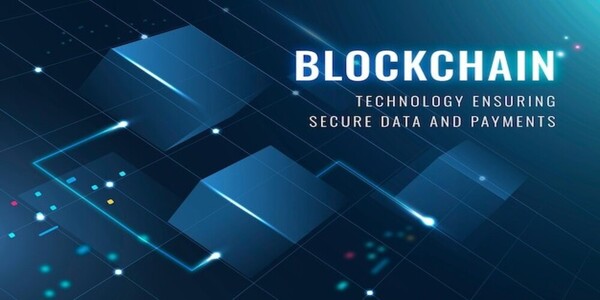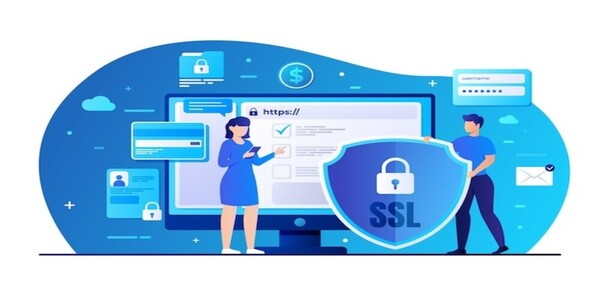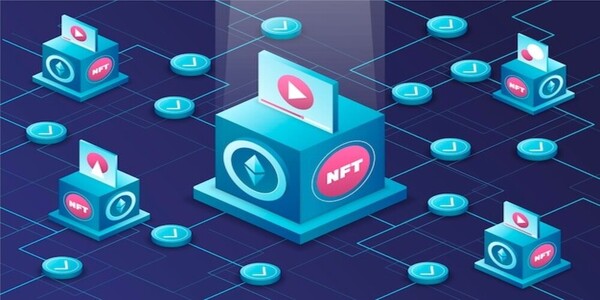
In the era of digital transformation, blockchain technology is an important tool for leveraging healthcare data management and streamlining patient care worldwide. Blockchain offers several innovative features that can revolutionize how medical professionals store and share health data in a secure way. By providing enhanced security protocols and an immutable form of record-keeping, this revolutionary technology promises to reduce healthcare costs while improving outcomes for patients. In this blog post, we will explore the opportunities offered by blockchain technology to enhance the secure storage and sharing of sensitive patient information throughout the healthcare system.
Table of Contents
Introducing blockchain technology to healthcare data management

The healthcare industry is taking a major step forward with the introduction of blockchain technology for data management. By utilizing this cutting-edge technology, healthcare organizations have the opportunity to securely store patient records and other important information in a manner that strengthens accuracy and simplifies accessibility. With patient data distributed across multiple secure locations and digital ledgers, healthcare providers are able to quickly and efficiently access critical health information while still maintaining its privacy and security. Additionally, blockchain technology eliminates dependence on traditional centralized networks and enables transparent communication between all stakeholders. As healthcare continues to become rapidly digitized, the integration of blockchain allows for faster diagnoses, smoother administrative tasks, improved compliance monitoring, and better overall care delivery.
Benefits of using blockchain in healthcare data management

There are several benefits of using blockchain technology in healthcare data management, including:
- Improved security: One of the key benefits of using blockchain in healthcare data management is improved security. Blockchain technology uses advanced cryptographic techniques to protect data from unauthorized access and tampering. This ensures that patient data is kept confidential and secure, which is essential for maintaining patient trust in the healthcare system.
- Enhanced privacy: Another benefit of using blockchain in healthcare data management is enhanced privacy. With blockchain technology, patient data can be stored in a decentralized and distributed ledger, which means that it is not controlled by any single entity. This can help to protect patient privacy by reducing the risk of data breaches and unauthorized access.
- Improved data quality: Blockchain technology can help to improve the quality of healthcare data by ensuring that all parties involved in a patient’s care have access to the same information. This can help to reduce errors and improve the accuracy of diagnoses and treatment plans.
- Increased interoperability: Blockchain technology can help to increase interoperability between different healthcare providers and systems. By using a decentralized and distributed ledger, patient data can be easily shared between different entities without the need for complex data integration.
- Reduced costs: Finally, using blockchain technology in healthcare data management can help to reduce costs by eliminating the need for intermediaries and reducing administrative overheads. This can help to free up resources that can be used to improve patient care and outcomes.
Overall, using blockchain technology in healthcare data management has the potential to improve security, privacy, data quality, interoperability, and reduce costs. These benefits can help to improve the overall quality of healthcare services and outcomes for patients.
Security and privacy features of health records stored on blockchain

Blockchain technology can provide several security and privacy features for health records stored on the blockchain. Some of these features are:
- Decentralized architecture: Blockchain technology is inherently decentralized, meaning that there is no central authority that controls the data stored on the blockchain. This makes it difficult for hackers to access or tamper with the data stored on the blockchain, providing greater security.
- Immutable ledger: Once data is added to the blockchain, it cannot be modified or deleted. This makes the blockchain an immutable ledger, which ensures that health records are kept secure and tamper-proof.
- Cryptographic hashing: Blockchain technology uses cryptographic hashing to ensure the integrity of the data stored on the blockchain. Each transaction is hashed and linked to the previous transaction, creating a chain of blocks that cannot be altered without invalidating the entire chain.
- Permissioned access: Blockchain technology can be designed to provide permissioned access to health records, meaning that only authorized users can access the data. This helps to ensure that patient data is kept confidential and secure.
- Encryption: Health records stored on the blockchain can be encrypted using advanced encryption algorithms. This makes it difficult for unauthorized users to access the data even if they manage to gain access to the blockchain.
- Smart contracts: Smart contracts can be used to enforce data access and usage policies. This helps to ensure that only authorized parties can access and use the health records stored on the blockchain.
Overall, the security and privacy features of health records stored on the blockchain provide greater confidence to patients and healthcare providers that their data is safe and secure. By using blockchain technology, patients can have greater control over their health records, and healthcare providers can access accurate and up-to-date information to provide better care.
Challenges of implementing healthcare data management on blockchain

While blockchain technology has the potential to revolutionize healthcare data management, there are several challenges associated with implementing it in a healthcare setting. Some of the challenges are:
- Regulatory challenges: Healthcare is a highly regulated industry, and the implementation of blockchain technology in healthcare data management must comply with regulatory requirements such as HIPAA, GDPR, and other data privacy laws. Ensuring compliance with these regulations can be a significant challenge, particularly when dealing with sensitive patient information.
- Interoperability challenges: Healthcare data is stored in a variety of formats and systems, and ensuring interoperability between different systems can be a challenge. Integrating blockchain technology with existing systems and ensuring that data is accurately transferred between different systems can be difficult.
- Technical challenges: Implementing blockchain technology in healthcare data management requires specialized technical expertise. Healthcare organizations must have the resources and expertise to implement and manage blockchain systems, which can be a significant investment.
- Data governance challenges: Managing health data on a blockchain requires a clear data governance structure that outlines who has access to the data and how it is used. Developing and implementing a robust data governance structure can be a significant challenge.
- User adoption challenges: Introducing a new technology into an organization can be met with resistance from users who are not familiar with the technology. Healthcare providers must be trained on how to use the blockchain system effectively to ensure that it is adopted and used appropriately.
Overall, implementing blockchain technology in healthcare data management requires careful planning and consideration of these challenges. Addressing these challenges will be critical to the successful implementation of blockchain technology in healthcare data management.
Examples of successful projects to enhance healthcare data management with blockchain

There have been several successful projects that have demonstrated the potential of blockchain technology in enhancing healthcare data management. Some examples of these projects include:
- Medicalchain: Medicalchain is a blockchain-based platform that allows patients to control their health data and share it with healthcare providers as needed. The platform uses smart contracts to enforce data access and usage policies, and patient data is encrypted and stored on the blockchain for added security.
- Guardtime: Guardtime is a blockchain-based platform that provides real-time monitoring and auditing of healthcare data. The platform uses blockchain technology to ensure that data is secure and tamper-proof, and it can be used to detect and prevent data breaches in real-time.
- Gem: Gem is a blockchain-based platform that provides a secure and decentralized platform for healthcare data exchange. The platform uses smart contracts to manage data access and usage, and it can be used to securely exchange data between healthcare providers and payers.
- SimplyVital Health: SimplyVital Health is a blockchain-based platform that provides a secure and transparent platform for healthcare data sharing. The platform uses blockchain technology to ensure that patient data is secure and tamper-proof, and it can be used to securely exchange data between healthcare providers and patients.
- Medical Diagnostic Web (MDW): MDW is a blockchain-based platform that uses machine learning algorithms to analyze medical images and provide accurate diagnoses. The platform uses blockchain technology to ensure that data is secure and tamper-proof, and it can be used to improve the accuracy of medical diagnoses.
Overall, these projects demonstrate the potential of blockchain technology in enhancing healthcare data management. By using blockchain technology, healthcare providers can improve the security, privacy, and accuracy of patient data, which can lead to better patient outcomes and improved healthcare services.
Possible future applications of blockchain technology in healthcare systems

Blockchain technology has the potential to revolutionize healthcare systems by providing greater security, privacy, and interoperability for health data. Some possible future applications of blockchain technology in healthcare systems include:
- Drug supply chain management: Blockchain technology can be used to create a secure and transparent drug supply chain management system. By using blockchain technology, the movement of drugs can be tracked and verified at each stage of the supply chain, reducing the risk of counterfeit drugs entering the market.
- Clinical trials: Blockchain technology can be used to create a more efficient and transparent clinical trial system. By using blockchain technology, the results of clinical trials can be verified and made more transparent, reducing the risk of fraud and improving the accuracy of trial results.
- Electronic health records (EHRs): Blockchain technology can be used to create a more secure and interoperable EHR system. By using blockchain technology, patients can have greater control over their health records, and healthcare providers can access accurate and up-to-date information to provide better care.
- Patient data sharing: Blockchain technology can be used to create a secure and transparent platform for patient data sharing. By using blockchain technology, patients can control who has access to their health data, and healthcare providers can securely exchange data to provide better care.
- Medical research: Blockchain technology can be used to create a more efficient and secure medical research system. By using blockchain technology, medical researchers can securely exchange data, and the results of medical research can be made more transparent and accessible.
Overall, the potential applications of blockchain technology in healthcare systems are vast. By using blockchain technology, healthcare systems can become more secure, efficient, and transparent, providing better care to patients and improving the overall quality of healthcare services.
In Conclusion
As the world moves forward into the digital age, new technologies and solutions to current problems in healthcare data management will begin to emerge. Blockchain technology presents an attractive option with its improved security, privacy and trustworthiness. Although blockchain is still a relatively nascent technology, projects have been successful in using it for healthcare data management due to several key benefits highlighted in this post. It remains to be seen how blockchain will be utilized moving forward, but there is potential for amazing applications such as digital health passports, patient-controlled personal health records and direct patient-provider networks. These applications could revolutionize healthcare systems around the globe and open up new possibilities in enhancing data accessibility and accuracy while protecting individuals.
FAQs.
1. How can blockchain revolutionize healthcare data management?
Blockchain has the potential to transform healthcare data management by improving security, privacy, interoperability, and data sharing. It enables secure and tamper-resistant storage of health records, facilitates data exchange between different stakeholders, and enhances patient control over their own data.
2. Can blockchain protect sensitive patient information?
Yes, blockchain can enhance the protection of sensitive patient information. It uses advanced cryptographic techniques to secure data and access controls that allow patients to maintain ownership and control over their personal health information. Additionally, blockchain’s decentralized nature reduces the risk of a single point of failure or unauthorized access.
3. How does blockchain enable data sharing in healthcare?
Blockchain facilitates data sharing by providing a secure and standardized platform for exchanging healthcare data. It establishes a trusted network where authorized participants can access and contribute to the blockchain’s data, ensuring transparency and integrity. Smart contracts can be used to define access rules and data usage permissions.
4. Is blockchain technology suitable for all healthcare applications?
Blockchain technology is not a one-size-fits-all solution. While it offers significant benefits for healthcare data management, its implementation should be evaluated on a case-by-case basis. Applications that involve sensitive data, data sharing, multiple stakeholders, and a need for trust and security are more likely to benefit from blockchain integration.
